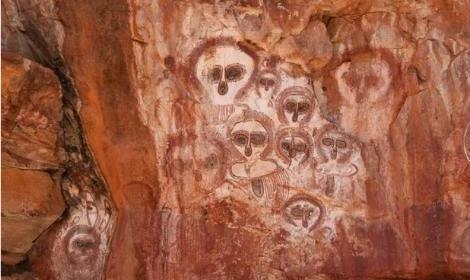国外QA:上帝为什么创造我们?(二)
正文翻译
Why did God create us?
上帝为什么创造我们?
上帝为什么创造我们?
评论翻译
Waleed Kadous
Why did God create humans?
From an Islamic perspective, the creation of humanity is a manifestation of many of God's attributes, including his power, his knowledge, his mercy, his forgiveness and his justice.
Ibn Qayyim Al-Jawziyya, one of the respected scholars of Islam, says in his book Madaarij Al Saalikeen that there are some of the characteristics of Allah that are only possible when there's a creation (such as knowing of his power etc), and there are some that are only possible when there's a creation with free will (such as mercy and forgiveness).
For example, forgiveness only makes sense when someone has free will and has the option of disobeying. And similarly, devotion to God only makes sense when someone has the free will to choose to devote themselves.
为什么上帝创造了人类?
从伊斯兰的角度来看,人类的创造是上帝许多属性的体现,包括他的力量、他的知识、他的仁慈、他的宽恕和他的正义。
受人尊敬的伊斯兰教学者之一伊本·盖伊姆·贾夫齐亚在他的书《Madaarij Al Saaliken》中说,安拉的一些特征只有在有创造物的时候才可能(比如知道他的力量等),而有些特征只有当有自由意志的创造物时才可能(例如仁慈和宽恕)。
例如,只有当某人有自由意志并可以选择不服从时,宽恕才有意义。同样,只有当某人有自由意志选择献身时,对上帝的奉献才有意义。
Dennis J Frailey
Did God create men or did men create God?
It’s pretty clear from human history that men created God. Throughout history, men have created supernatural creatures with amazingly human-like characteristics based on their conceptions of what such a creature would be like. When you consider human nature, it seems perfectly sensible that man created supernatural beings to help explain phenomena they could not understand and control, such as thunder, lightning, earthquakes, hurricanes, and so forth. Humans are incredibly good at coming up with tall tales and legends and imaginary characters. Consider the many legends and tales that one finds in every human culture. They are often quite different from each other, suggesting they do not have a common origin, but they are all quite imaginative and creative. Many scientists believe this is one of the major differences between humans and other creatures.
上帝创造了人还是人创造了上帝?
从人类历史上可以清楚地看到,人类创造了上帝。纵观历史,人类根据对超自然生物的概念,创造出了具有惊人的类人特征的超自然生物。当你考虑到人性时,人类创造超自然生物来帮助解释他们无法理解和控制的现象,比如雷电、地震、飓风等等,这似乎是完全合理的。人类非常善于想出高大上的故事、传说和想象中的人物。想想在每一种人类文化中都能找到的许多传说和故事。它们往往彼此截然不同,这表明它们没有共同的起源,但它们都很有想象力和创造力。许多科学家认为这是人类和其他生物之间的主要区别之一。
Imagine a cave man or woman whose young child asks “why” and where the mother and father don’t know the answer. Rather than keep telling the child “I don’t know” (which would diminish them in the eyes of the child) they invent some supernatural being that is to blame. The children pass these legendary figures around to their friends and down to their children and after a while, they become cultural icons and beliefs.
In ancient days, human civilizations had dozens of mythical creatures they called gods and goddesses to explain everything from war to love. Each civilization had different supernatural creatures to blame for things. Some invented voodoo, for example. They eventually started to pray to these mythical characters because, if you want to stop a hurricane, why not pray to the god of hurricanes? They also fought major wars over which gods were real, and when one country conquered another they forced the conquered people to support the supernatural creatures of the conqueror. Eventually, these beings sort of coalesced into a main god and various underlings (angels, devils, etc.).
想象一下,一个洞穴男人或女人,他的小孩问“为什么”,而那里的父母不知道答案。他们并没有一直告诉孩子“我不知道”(这会在孩子眼中削弱他们的地位),而是发明了一些应该受到谴责的超自然生物。孩子们把这些传奇人物的知识传薄给朋友,传给孩子,过一段时间,他们就成了文化偶像和信仰。
在古代,人类文明有几十种神话般的生物,他们称之为神和女神,用来解释从战争到爱情的一切。每一个文明都有不同的超自然生物。例如,有些人发明了伏都教(一种西非原始宗教)。他们最终开始向这些神话人物祈祷,因为如果你想阻止飓风,为什么不向飓风之神祈祷呢?他们还为神灵的真实性而进行大规模战争,当一个国家征服另一个国家时,他们强迫被征服的人民支持征服者的超自然生物。最终,这些生物在某种程度上融合成了一个主神和各种下属(天使、魔鬼等)。
Also, throughout history, tyrants and those seeking power would claim to have the support of the gods, or to be gods, or later to be the messenger of the one god (“god is on our side”). Those with the more modest aim of getting people to behave in a particular way would claim to have spoken with god (prophets, for example, and the founders of various religions) and would produce some set of precepts (such as the ten commandments or the book of Mormon or whatever), claiming it was what god told them to write or to preach.
So why do people buy in? Because people want something to believe in.
Note: virtually every situation or character in the Christian bible can be found in the mythology and gods of earlier civilizations. From virgin birth to the great flood to the story of creation, it’s patently obvious that the Israelites and Christians copied these from earlier myths in Egypt, Samaria, etc.,
此外,纵观历史,暴君和那些寻求权力的人会声称有神的支持,或者是神,或者后来是一个神的信使(“神是站在我们这边的”)。那些以让人们以特定方式行事为更温和目标的人会声称自己与上帝(例如先知和各种宗教的创始人)交谈过,并会制定一些戒律(如十诫或《摩门经》或其他什么),声称这是上帝告诉他们写或传讲的。
那么,为什么人们会接受呢?因为人们想要有信仰。
注:基督教圣经中几乎每一种情况或人物都可以在早期文明的神话和神中找到。从圣母诞生到大洪水再到创世故事,很明显,以色列人和基督徒复制了埃及、撒马利亚等地早期的神话。
Erik Manning
Who made God?
This obxtion usually comes up in response to the cosmological argument for God’s existence. The cosmological argument (there are several variations) usually argues for God as the first cause of the universe or as the explanation for the existence of the universe. But the answer to the question is pretty simple:
No one made God.
谁创造了上帝?
这种反对观点通常出现在对上帝存在的宇宙学论证的回应中。宇宙学论证(有几种变体)通常认为上帝是宇宙的第一因,或者是宇宙存在的解释。但这个问题的答案很简单:
没有人创造上帝。
God is self-existent. Philosophers and theologians call this attribute of God divine aseity, and it’s not a novel concept. Quoting the 19th-century Presbyterian theologian Robert Shaw: “God is self-existent and independent. He has all life, glory, and blessedness, in and of himself. His existence is necessary and underived; His glory and blessedness are likewise underived. His glory necessarily results from or rather consists in, the absolute perfection of has own nature, and his blessedness is all summed up in the possession and enjoyment of his own infinite excellencies. Being thus he must be independent of any other being.”
Some atheists at this point say “you can’t define God any way you want!” But anyone who has done some mathematics understands how definitions work. Furthermore, this is what the atheist has always said about the universe up until recent cosmology has called it into question – that matter has always existed.
上帝是自我存在的。哲学家和神学家称上帝的这一属性为神圣,这不是一个新颖的概念。引用19世纪长老会神学家Robert Shaw的话:“上帝是自我存在和独立的。他拥有全部的生命、荣耀和福祉,源自于他自己。他的存在是必然的且不衍生的;他的荣耀和福祉同样也是不衍生的。他的荣耀必然源自于,或者更确切地说是存在于他绝对完美的本性中,而他的福祉完全体现在拥有并享受他自己的无尽卓越之中。因此,他必须独立于任何其他存在。”
在这一点上,一些无神论者说“你不能以任何你想要的方式定义上帝!”但任何做过数学运算的人都明白定义是如何工作的。此外,这也是无神论者对宇宙的一贯看法,直到最近的宇宙学对其提出质疑——物质一直存在。
Asking who created God is a nonsense question
If you think about it, asking this question is like asking what shape the color purple is or what the number 7 tastes like. The skeptic is basically asking “What caused the thing that is the uncaused cause?” or “what brought into being that which has always been?” Asking the question is also an adventure in missing the point. The Christian philosopher Ed Feser is helpful here:
What [the argument] seeks to show is that if there is to be an ultimate explanation of things, then there must be a cause of everything else which not only happens to exist but which could not even in principle have failed to exist. And that is why it is said to be uncaused – not because it is an arbitrary exception to a general rule, not because it merely happens to be uncaused, but rather because it is not the sort of thing that can even in principle be said to have had a cause, precisely because it could not even in principle have failed to exist in the first place. And the argument doesn’t merely assume or stipulate that the first cause is like this; on the contrary, the whole point of the argument is to try to show that there must be something like this.
问谁创造了上帝是个无稽之谈
如果你仔细想想,问这个问题就像问紫色是什么形状,或者数字7是什么味道。怀疑论者基本上是在问““是什么导致了那个没有因果关系的原因?”或者“是什么使一直存在的东西产生了?”提出这个问题也是在误解核心问题。基督教哲学家埃德·费瑟在这里提供了一些有帮助的见解:
“这一论点”试图表明的是,如果要对事情有一个最终的解释,那么其他一切都必须有一个原因,这个原因不仅碰巧存在,而且原则上也不可能不存在。这就是为什么它被认为是没有因果关系的原因——正是因为它甚至在原则上一开始就不可能不存在,也不是因为它碰巧是无因的,而是因为它甚至在原则上都不能说是有原因的,正是因为它根本就不可能不存在。这个论证不只是假设或规定第一原因是这样的;相反,这个论证的重点是试图证明一定有这样的东西存在。
…So, to ask “What caused God?” really amounts to asking “What caused the thing that cannot in principle have had a cause?”, or “What actualized the potentials in that thing which is pure actuality and thus never had any potentials of any sort needing to be actualized in the first place?”, or “What imparted a sufficient reason for existence to that thing which has its sufficient reason for existence within itself and did not derive it from something else?” And none of these questions makes any sense. Of course, the atheist might say that he isn’t convinced that the cosmological argument succeeds in showing that there really is something that could not in principle have had a cause, or that is purely actual, or that has a sufficient reason for its existence within itself. He might even try to argue that there is some sort of hidden incoherence in these notions. But merely to ask “What caused God?” – as if the defender of the cosmological argument had overlooked the most obvious of obxtions – simply misses the whole point. A serious critic has to grapple with the details of the arguments.
因此,问“上帝是什么导致的?”实际上等同于问:“是什么导致了在原则上不可能有原因的事物?”,或者“是什么实现了那个纯粹实在性的东西内部的潜能,因此根本没有需要在第一次实现的任何潜能?”或者“是什么赋予了存在的充分理由给那个在自身内部拥有存在的充分理由而不是从其他地方衍生的东西?”而这些问题都毫无意义。当然,无神论者可能会说他并不认为宇宙学论证成功地表明确实存在某种原则上不能有原因的东西,或者纯粹是实在的,或者在自身内部有存在的充分理由。他甚至可能试图论证这些概念中存在某种隐含的不一致性。但仅仅问“上帝是什么导致的?”就好像宇宙学论证的辩护者忽略了最明显的反对意见一样,实际上是完全误解了问题的本质。一个认真的批评者必须着手处理论证的细节。
The question “who made God?” falls into an infinite regress.
This is precisely where Mormon theology falls apart. Mormons believe that God was once a man who eventually progressed into becoming God. But then that God must have come from somewhere, and then the God before him must have come from somewhere until we get into Buzz Lightyear territory. To infinity and beyond!
Jim Post, an atheistic philosopher at Vanderbilt also believes that the who made God obxtion is a pretty terrible one. He says: “…there cannot be an infinite regress of explanations… Again the reasons are not practical, such as the finiteness of our faculties, but logic or conceptual, entailed by the very notions of explanations involved. Even for an infinite intellect, regresses of such explanations must end.”
“谁创造了上帝?”这个问题陷入了无限回归的境地。这正是摩门教神学崩溃的地方。摩门教徒相信上帝曾经是一个人,最终进化成为上帝。但那个上帝肯定也来自某处,然后在他之前的上帝也肯定来自某处,直到我们进入“巴斯·光年”的领域。无限,超越无限!范德堡大学的无神论哲学家吉姆·波斯特(Jim Post)也认为“谁创造了上帝”这个异议是一个相当糟糕的异议。他说:“……解释不能有无限回归…原因不是实际上的,比如我们的能力有限,而是逻辑或概念上的,由所涉及的解释概念本身所引起。即使对于一个无限的智慧,这样的解释回归也必须结束。”
And here’s Peter Lipton, also another atheistic philosopher: “…explanations need not themselves be understood. A drought may explain a poor crop, even if we don’t understand why there was a drought; I understand why you didn’t come to the party if you explain you had a bad headache, even if I have no idea why you had a headache; the big bang explains the background radiation, even if the big bang is itself inexplicable, and so on…the (why-regress) argument brings out the important facts that explanations can be chained, and that what explains need not itself be understood.”
Here’s the thing: Unless you’re just apathetic to the question, everyone is trying to identify the first cause of the universe, whether they believe in God or not. A spaceless, timeless, immaterial and immensely powerful cause is required to exist, or it seems you’re left with an infinite regress.
这里还有另一位无神论哲学家彼得·利普顿的观点:“……解释本身无需被理解。旱灾可能解释了庄稼歉收,尽管我们不理解为什么有旱灾;如果你解释说你头痛得厉害,我就明白你为什么没来参加聚会,尽管我不知道你为什么头痛;宇宙大爆炸解释了背景辐射,即使大爆炸本身是无法解释的,依此类推……(为什么回归)论证揭示了一个重要的事实,即解释可以被链接,而解释的东西本身无需被理解。”
问题在于:除非你对这个问题漠不关心,否则每个人都在试图找出宇宙的第一原因,无论他们是否信仰上帝。一个无空间、无时间、非物质且强大无比的原因是必需存在的,否则似乎你只能面对无限回归的困境。
Robert Owen
If God knows everything, what is the point of life?
Well, you’re kinda dancing around the edges of the issue.
Take the Noah story: God was so disappointed with humanity that he decided to kill us off. How’s that again?
If God knows everything then he knew how humanity would turn out. There would be no disappointment, God knew all this when HE set the wheels in motion. And what’s all this about Adam and Eve sneaking an apple without God knowing about it - God knows everything.
The answer is that if there is a God, and if HE knows everything, then HE’s been setting humanity up all along - for one reason or another. Who knows?
The Bible stories aren’t history; they’re not geology; they’re not astronomy or dentistry or anything of the kind. The stories are there to instruct people to conduct themselves in a civilized fashion. Keep in mind that “civilized” back when these stories were put together wasn’t quite what it is today.
As to what the point of life is, that’s completely up to you. You and only you can add value to the life you’ve been given.
如果上帝知道一切,那么生命的意义是什么呢?
嗯,你有点在问题的边缘绕圈子。
以诺亚的故事为例:上帝对人类如此失望,以至于决定将我们全部消灭。再说一遍,怎么回事?
如果上帝知道一切,那么他就知道人类将会变成什么样。不会有失望,上帝在启动这一切的时候就知道了所有这些。那么亚当和夏娃偷偷吃苹果的事情又是怎么回事呢?上帝什么都知道。
答案是,如果有一个上帝,并且如果他知道一切,那么他一直都在安排人类的命运 - 无论出于何种原因。谁知道呢?
圣经的故事不是历史;它们不是地质学;它们不是天文学、牙科或任何其他类似的东西。这些故事的目的是教导人们以文明的方式行事。请记住,当这些故事被编写时,“文明”并不是今天的样子。
至于生命的意义是什么,那完全取决于你。只有你能为你所赋予的生命增添价值。
Greg L
God knows everything. Even before you were formed and what will happen to you in the end, why does he have to create people that will enter hell at last, and is it the people's fault going to hell?
That’s a good question. Well, let’s see. God never threatened Adam & Eve of Hell. Cain was never warned of Hell before or after slaying Abel. God never proclaimed the people not saved in the parable of Noah’s Ark, were going to burn forever. The Hebrew Bible, which is essentially the Old Testament, never mentions Hell or eternal torment. It does mention Sheol, which means grave.
The King James Bible (KJB) is the one most of us were raised to believe is God’s Word. King James believed in witchcraft and wrote a book on witchcraft prior to his KJB translation in 1611. Good ole King James also oversaw the torture of women. His interpreters substituted Hell for Sheol.
Hell is mentioned in the New Testament less than one time per book. The first time Hell is documented was in Babylon approximately 300 A.D. READ THAT LAST SENTENCE AGAIN!
上帝知道一切。甚至在你形成之前,以及你最终会发生什么都知道,为什么他要创造最终会进入地狱的人,下地狱是人民的错吗?
这是一个很好的问题。好吧,我们来看看。上帝从未威胁过亚当和夏娃要进地狱。在杀害亚伯之前或之后,该隐从未被警告过进地狱。上帝从未宣称诺亚方舟寓言中没有被拯救的人将永远被火焚烧。希伯来圣经,基本上就是旧约,从未提到地狱或永恒的折磨。它确实提到了Sheol,意思是坟墓。
英皇钦定版圣经(The King James Bible)(KJB)是我们大多数人从小就被教导要相信神的版本。詹姆斯国王相信巫术,并在他1611年翻译英皇钦定版圣经(The King James Bible)之前写了一本关于巫术的书。詹姆斯国王还监督了对妇女的酷刑。他的解释者用"地狱"替换了"坟墓"。
新约中提到地狱的次数在每本书中都不到一次。地狱第一次被记载是在大约公元300年的巴比伦。把最后一句话再读一遍!
If Jesus’ main purpose was to be prevent the world’s population, including the 70 - 90% non-Christian, from being condemned to a torturous fire for all eternity, why didn’t he shout it from the rooftops? Instead, he said, I came that ye may have life and have it abundantly.
Most Christians do not even know there are major differences between English Bible translations. Most do not know there are many translations that do NOT contain the concept of a hell of eternal punishment.
Most have been told since early childhood about hell from people, parents and clergy, who would never lie to them. If you tell people something enough, they tend to believe it. This is the way Nazi Germany brainwashed people against the Jews.
如果耶稣的主要目的是阻止全球人口,包括70-90%的非基督徒,永远被判定在折磨性的火焰中,为什么他不会大声疾呼呢?相反,他说,我来是要叫人得永生,并且活的更灿烂的。
大多数基督徒甚至不知道英文圣经翻译之间存在重大差异。大多数人不知道有许多翻译根本不包含永久惩罚的地狱概念。
大多数人从小就被人、父母和牧师告知有关地狱的事情,这些人永远不会对他们撒谎。如果你告诉人们某事足够多次,他们就会相信的。这是纳粹德国洗脑反对犹太人的方式。
Why did God create humans?
From an Islamic perspective, the creation of humanity is a manifestation of many of God's attributes, including his power, his knowledge, his mercy, his forgiveness and his justice.
Ibn Qayyim Al-Jawziyya, one of the respected scholars of Islam, says in his book Madaarij Al Saalikeen that there are some of the characteristics of Allah that are only possible when there's a creation (such as knowing of his power etc), and there are some that are only possible when there's a creation with free will (such as mercy and forgiveness).
For example, forgiveness only makes sense when someone has free will and has the option of disobeying. And similarly, devotion to God only makes sense when someone has the free will to choose to devote themselves.
为什么上帝创造了人类?
从伊斯兰的角度来看,人类的创造是上帝许多属性的体现,包括他的力量、他的知识、他的仁慈、他的宽恕和他的正义。
受人尊敬的伊斯兰教学者之一伊本·盖伊姆·贾夫齐亚在他的书《Madaarij Al Saaliken》中说,安拉的一些特征只有在有创造物的时候才可能(比如知道他的力量等),而有些特征只有当有自由意志的创造物时才可能(例如仁慈和宽恕)。
例如,只有当某人有自由意志并可以选择不服从时,宽恕才有意义。同样,只有当某人有自由意志选择献身时,对上帝的奉献才有意义。
Dennis J Frailey
Did God create men or did men create God?
It’s pretty clear from human history that men created God. Throughout history, men have created supernatural creatures with amazingly human-like characteristics based on their conceptions of what such a creature would be like. When you consider human nature, it seems perfectly sensible that man created supernatural beings to help explain phenomena they could not understand and control, such as thunder, lightning, earthquakes, hurricanes, and so forth. Humans are incredibly good at coming up with tall tales and legends and imaginary characters. Consider the many legends and tales that one finds in every human culture. They are often quite different from each other, suggesting they do not have a common origin, but they are all quite imaginative and creative. Many scientists believe this is one of the major differences between humans and other creatures.
上帝创造了人还是人创造了上帝?
从人类历史上可以清楚地看到,人类创造了上帝。纵观历史,人类根据对超自然生物的概念,创造出了具有惊人的类人特征的超自然生物。当你考虑到人性时,人类创造超自然生物来帮助解释他们无法理解和控制的现象,比如雷电、地震、飓风等等,这似乎是完全合理的。人类非常善于想出高大上的故事、传说和想象中的人物。想想在每一种人类文化中都能找到的许多传说和故事。它们往往彼此截然不同,这表明它们没有共同的起源,但它们都很有想象力和创造力。许多科学家认为这是人类和其他生物之间的主要区别之一。
Imagine a cave man or woman whose young child asks “why” and where the mother and father don’t know the answer. Rather than keep telling the child “I don’t know” (which would diminish them in the eyes of the child) they invent some supernatural being that is to blame. The children pass these legendary figures around to their friends and down to their children and after a while, they become cultural icons and beliefs.
In ancient days, human civilizations had dozens of mythical creatures they called gods and goddesses to explain everything from war to love. Each civilization had different supernatural creatures to blame for things. Some invented voodoo, for example. They eventually started to pray to these mythical characters because, if you want to stop a hurricane, why not pray to the god of hurricanes? They also fought major wars over which gods were real, and when one country conquered another they forced the conquered people to support the supernatural creatures of the conqueror. Eventually, these beings sort of coalesced into a main god and various underlings (angels, devils, etc.).
想象一下,一个洞穴男人或女人,他的小孩问“为什么”,而那里的父母不知道答案。他们并没有一直告诉孩子“我不知道”(这会在孩子眼中削弱他们的地位),而是发明了一些应该受到谴责的超自然生物。孩子们把这些传奇人物的知识传薄给朋友,传给孩子,过一段时间,他们就成了文化偶像和信仰。
在古代,人类文明有几十种神话般的生物,他们称之为神和女神,用来解释从战争到爱情的一切。每一个文明都有不同的超自然生物。例如,有些人发明了伏都教(一种西非原始宗教)。他们最终开始向这些神话人物祈祷,因为如果你想阻止飓风,为什么不向飓风之神祈祷呢?他们还为神灵的真实性而进行大规模战争,当一个国家征服另一个国家时,他们强迫被征服的人民支持征服者的超自然生物。最终,这些生物在某种程度上融合成了一个主神和各种下属(天使、魔鬼等)。
Also, throughout history, tyrants and those seeking power would claim to have the support of the gods, or to be gods, or later to be the messenger of the one god (“god is on our side”). Those with the more modest aim of getting people to behave in a particular way would claim to have spoken with god (prophets, for example, and the founders of various religions) and would produce some set of precepts (such as the ten commandments or the book of Mormon or whatever), claiming it was what god told them to write or to preach.
So why do people buy in? Because people want something to believe in.
Note: virtually every situation or character in the Christian bible can be found in the mythology and gods of earlier civilizations. From virgin birth to the great flood to the story of creation, it’s patently obvious that the Israelites and Christians copied these from earlier myths in Egypt, Samaria, etc.,
此外,纵观历史,暴君和那些寻求权力的人会声称有神的支持,或者是神,或者后来是一个神的信使(“神是站在我们这边的”)。那些以让人们以特定方式行事为更温和目标的人会声称自己与上帝(例如先知和各种宗教的创始人)交谈过,并会制定一些戒律(如十诫或《摩门经》或其他什么),声称这是上帝告诉他们写或传讲的。
那么,为什么人们会接受呢?因为人们想要有信仰。
注:基督教圣经中几乎每一种情况或人物都可以在早期文明的神话和神中找到。从圣母诞生到大洪水再到创世故事,很明显,以色列人和基督徒复制了埃及、撒马利亚等地早期的神话。
Erik Manning
Who made God?
This obxtion usually comes up in response to the cosmological argument for God’s existence. The cosmological argument (there are several variations) usually argues for God as the first cause of the universe or as the explanation for the existence of the universe. But the answer to the question is pretty simple:
No one made God.
谁创造了上帝?
这种反对观点通常出现在对上帝存在的宇宙学论证的回应中。宇宙学论证(有几种变体)通常认为上帝是宇宙的第一因,或者是宇宙存在的解释。但这个问题的答案很简单:
没有人创造上帝。
God is self-existent. Philosophers and theologians call this attribute of God divine aseity, and it’s not a novel concept. Quoting the 19th-century Presbyterian theologian Robert Shaw: “God is self-existent and independent. He has all life, glory, and blessedness, in and of himself. His existence is necessary and underived; His glory and blessedness are likewise underived. His glory necessarily results from or rather consists in, the absolute perfection of has own nature, and his blessedness is all summed up in the possession and enjoyment of his own infinite excellencies. Being thus he must be independent of any other being.”
Some atheists at this point say “you can’t define God any way you want!” But anyone who has done some mathematics understands how definitions work. Furthermore, this is what the atheist has always said about the universe up until recent cosmology has called it into question – that matter has always existed.
上帝是自我存在的。哲学家和神学家称上帝的这一属性为神圣,这不是一个新颖的概念。引用19世纪长老会神学家Robert Shaw的话:“上帝是自我存在和独立的。他拥有全部的生命、荣耀和福祉,源自于他自己。他的存在是必然的且不衍生的;他的荣耀和福祉同样也是不衍生的。他的荣耀必然源自于,或者更确切地说是存在于他绝对完美的本性中,而他的福祉完全体现在拥有并享受他自己的无尽卓越之中。因此,他必须独立于任何其他存在。”
在这一点上,一些无神论者说“你不能以任何你想要的方式定义上帝!”但任何做过数学运算的人都明白定义是如何工作的。此外,这也是无神论者对宇宙的一贯看法,直到最近的宇宙学对其提出质疑——物质一直存在。
Asking who created God is a nonsense question
If you think about it, asking this question is like asking what shape the color purple is or what the number 7 tastes like. The skeptic is basically asking “What caused the thing that is the uncaused cause?” or “what brought into being that which has always been?” Asking the question is also an adventure in missing the point. The Christian philosopher Ed Feser is helpful here:
What [the argument] seeks to show is that if there is to be an ultimate explanation of things, then there must be a cause of everything else which not only happens to exist but which could not even in principle have failed to exist. And that is why it is said to be uncaused – not because it is an arbitrary exception to a general rule, not because it merely happens to be uncaused, but rather because it is not the sort of thing that can even in principle be said to have had a cause, precisely because it could not even in principle have failed to exist in the first place. And the argument doesn’t merely assume or stipulate that the first cause is like this; on the contrary, the whole point of the argument is to try to show that there must be something like this.
问谁创造了上帝是个无稽之谈
如果你仔细想想,问这个问题就像问紫色是什么形状,或者数字7是什么味道。怀疑论者基本上是在问““是什么导致了那个没有因果关系的原因?”或者“是什么使一直存在的东西产生了?”提出这个问题也是在误解核心问题。基督教哲学家埃德·费瑟在这里提供了一些有帮助的见解:
“这一论点”试图表明的是,如果要对事情有一个最终的解释,那么其他一切都必须有一个原因,这个原因不仅碰巧存在,而且原则上也不可能不存在。这就是为什么它被认为是没有因果关系的原因——正是因为它甚至在原则上一开始就不可能不存在,也不是因为它碰巧是无因的,而是因为它甚至在原则上都不能说是有原因的,正是因为它根本就不可能不存在。这个论证不只是假设或规定第一原因是这样的;相反,这个论证的重点是试图证明一定有这样的东西存在。
…So, to ask “What caused God?” really amounts to asking “What caused the thing that cannot in principle have had a cause?”, or “What actualized the potentials in that thing which is pure actuality and thus never had any potentials of any sort needing to be actualized in the first place?”, or “What imparted a sufficient reason for existence to that thing which has its sufficient reason for existence within itself and did not derive it from something else?” And none of these questions makes any sense. Of course, the atheist might say that he isn’t convinced that the cosmological argument succeeds in showing that there really is something that could not in principle have had a cause, or that is purely actual, or that has a sufficient reason for its existence within itself. He might even try to argue that there is some sort of hidden incoherence in these notions. But merely to ask “What caused God?” – as if the defender of the cosmological argument had overlooked the most obvious of obxtions – simply misses the whole point. A serious critic has to grapple with the details of the arguments.
因此,问“上帝是什么导致的?”实际上等同于问:“是什么导致了在原则上不可能有原因的事物?”,或者“是什么实现了那个纯粹实在性的东西内部的潜能,因此根本没有需要在第一次实现的任何潜能?”或者“是什么赋予了存在的充分理由给那个在自身内部拥有存在的充分理由而不是从其他地方衍生的东西?”而这些问题都毫无意义。当然,无神论者可能会说他并不认为宇宙学论证成功地表明确实存在某种原则上不能有原因的东西,或者纯粹是实在的,或者在自身内部有存在的充分理由。他甚至可能试图论证这些概念中存在某种隐含的不一致性。但仅仅问“上帝是什么导致的?”就好像宇宙学论证的辩护者忽略了最明显的反对意见一样,实际上是完全误解了问题的本质。一个认真的批评者必须着手处理论证的细节。
The question “who made God?” falls into an infinite regress.
This is precisely where Mormon theology falls apart. Mormons believe that God was once a man who eventually progressed into becoming God. But then that God must have come from somewhere, and then the God before him must have come from somewhere until we get into Buzz Lightyear territory. To infinity and beyond!
Jim Post, an atheistic philosopher at Vanderbilt also believes that the who made God obxtion is a pretty terrible one. He says: “…there cannot be an infinite regress of explanations… Again the reasons are not practical, such as the finiteness of our faculties, but logic or conceptual, entailed by the very notions of explanations involved. Even for an infinite intellect, regresses of such explanations must end.”
“谁创造了上帝?”这个问题陷入了无限回归的境地。这正是摩门教神学崩溃的地方。摩门教徒相信上帝曾经是一个人,最终进化成为上帝。但那个上帝肯定也来自某处,然后在他之前的上帝也肯定来自某处,直到我们进入“巴斯·光年”的领域。无限,超越无限!范德堡大学的无神论哲学家吉姆·波斯特(Jim Post)也认为“谁创造了上帝”这个异议是一个相当糟糕的异议。他说:“……解释不能有无限回归…原因不是实际上的,比如我们的能力有限,而是逻辑或概念上的,由所涉及的解释概念本身所引起。即使对于一个无限的智慧,这样的解释回归也必须结束。”
And here’s Peter Lipton, also another atheistic philosopher: “…explanations need not themselves be understood. A drought may explain a poor crop, even if we don’t understand why there was a drought; I understand why you didn’t come to the party if you explain you had a bad headache, even if I have no idea why you had a headache; the big bang explains the background radiation, even if the big bang is itself inexplicable, and so on…the (why-regress) argument brings out the important facts that explanations can be chained, and that what explains need not itself be understood.”
Here’s the thing: Unless you’re just apathetic to the question, everyone is trying to identify the first cause of the universe, whether they believe in God or not. A spaceless, timeless, immaterial and immensely powerful cause is required to exist, or it seems you’re left with an infinite regress.
这里还有另一位无神论哲学家彼得·利普顿的观点:“……解释本身无需被理解。旱灾可能解释了庄稼歉收,尽管我们不理解为什么有旱灾;如果你解释说你头痛得厉害,我就明白你为什么没来参加聚会,尽管我不知道你为什么头痛;宇宙大爆炸解释了背景辐射,即使大爆炸本身是无法解释的,依此类推……(为什么回归)论证揭示了一个重要的事实,即解释可以被链接,而解释的东西本身无需被理解。”
问题在于:除非你对这个问题漠不关心,否则每个人都在试图找出宇宙的第一原因,无论他们是否信仰上帝。一个无空间、无时间、非物质且强大无比的原因是必需存在的,否则似乎你只能面对无限回归的困境。
Robert Owen
If God knows everything, what is the point of life?
Well, you’re kinda dancing around the edges of the issue.
Take the Noah story: God was so disappointed with humanity that he decided to kill us off. How’s that again?
If God knows everything then he knew how humanity would turn out. There would be no disappointment, God knew all this when HE set the wheels in motion. And what’s all this about Adam and Eve sneaking an apple without God knowing about it - God knows everything.
The answer is that if there is a God, and if HE knows everything, then HE’s been setting humanity up all along - for one reason or another. Who knows?
The Bible stories aren’t history; they’re not geology; they’re not astronomy or dentistry or anything of the kind. The stories are there to instruct people to conduct themselves in a civilized fashion. Keep in mind that “civilized” back when these stories were put together wasn’t quite what it is today.
As to what the point of life is, that’s completely up to you. You and only you can add value to the life you’ve been given.
如果上帝知道一切,那么生命的意义是什么呢?
嗯,你有点在问题的边缘绕圈子。
以诺亚的故事为例:上帝对人类如此失望,以至于决定将我们全部消灭。再说一遍,怎么回事?
如果上帝知道一切,那么他就知道人类将会变成什么样。不会有失望,上帝在启动这一切的时候就知道了所有这些。那么亚当和夏娃偷偷吃苹果的事情又是怎么回事呢?上帝什么都知道。
答案是,如果有一个上帝,并且如果他知道一切,那么他一直都在安排人类的命运 - 无论出于何种原因。谁知道呢?
圣经的故事不是历史;它们不是地质学;它们不是天文学、牙科或任何其他类似的东西。这些故事的目的是教导人们以文明的方式行事。请记住,当这些故事被编写时,“文明”并不是今天的样子。
至于生命的意义是什么,那完全取决于你。只有你能为你所赋予的生命增添价值。
Greg L
God knows everything. Even before you were formed and what will happen to you in the end, why does he have to create people that will enter hell at last, and is it the people's fault going to hell?
That’s a good question. Well, let’s see. God never threatened Adam & Eve of Hell. Cain was never warned of Hell before or after slaying Abel. God never proclaimed the people not saved in the parable of Noah’s Ark, were going to burn forever. The Hebrew Bible, which is essentially the Old Testament, never mentions Hell or eternal torment. It does mention Sheol, which means grave.
The King James Bible (KJB) is the one most of us were raised to believe is God’s Word. King James believed in witchcraft and wrote a book on witchcraft prior to his KJB translation in 1611. Good ole King James also oversaw the torture of women. His interpreters substituted Hell for Sheol.
Hell is mentioned in the New Testament less than one time per book. The first time Hell is documented was in Babylon approximately 300 A.D. READ THAT LAST SENTENCE AGAIN!
上帝知道一切。甚至在你形成之前,以及你最终会发生什么都知道,为什么他要创造最终会进入地狱的人,下地狱是人民的错吗?
这是一个很好的问题。好吧,我们来看看。上帝从未威胁过亚当和夏娃要进地狱。在杀害亚伯之前或之后,该隐从未被警告过进地狱。上帝从未宣称诺亚方舟寓言中没有被拯救的人将永远被火焚烧。希伯来圣经,基本上就是旧约,从未提到地狱或永恒的折磨。它确实提到了Sheol,意思是坟墓。
英皇钦定版圣经(The King James Bible)(KJB)是我们大多数人从小就被教导要相信神的版本。詹姆斯国王相信巫术,并在他1611年翻译英皇钦定版圣经(The King James Bible)之前写了一本关于巫术的书。詹姆斯国王还监督了对妇女的酷刑。他的解释者用"地狱"替换了"坟墓"。
新约中提到地狱的次数在每本书中都不到一次。地狱第一次被记载是在大约公元300年的巴比伦。把最后一句话再读一遍!
If Jesus’ main purpose was to be prevent the world’s population, including the 70 - 90% non-Christian, from being condemned to a torturous fire for all eternity, why didn’t he shout it from the rooftops? Instead, he said, I came that ye may have life and have it abundantly.
Most Christians do not even know there are major differences between English Bible translations. Most do not know there are many translations that do NOT contain the concept of a hell of eternal punishment.
Most have been told since early childhood about hell from people, parents and clergy, who would never lie to them. If you tell people something enough, they tend to believe it. This is the way Nazi Germany brainwashed people against the Jews.
如果耶稣的主要目的是阻止全球人口,包括70-90%的非基督徒,永远被判定在折磨性的火焰中,为什么他不会大声疾呼呢?相反,他说,我来是要叫人得永生,并且活的更灿烂的。
大多数基督徒甚至不知道英文圣经翻译之间存在重大差异。大多数人不知道有许多翻译根本不包含永久惩罚的地狱概念。
大多数人从小就被人、父母和牧师告知有关地狱的事情,这些人永远不会对他们撒谎。如果你告诉人们某事足够多次,他们就会相信的。这是纳粹德国洗脑反对犹太人的方式。











